The introduction of the ChatGPT chatbot by OpenAI (and its subsequent popularity) has triggered a host of questions about intellectual property and copyright ownership. A key question is: who owns the content that is created by ChatGPT? At this point in time, the answer isn’t entirely clear.
According to the OpenAI terms of use:
- You own all input (meaning the request you have made to ChatGPT)
- OpenAI assigns to you all its right, title and interest in and to output
But there are a lot of caveats, with three concerns in particular:
- The “output” you get from ChatGPT might duplicate responses given to other users
- It might be incomplete or incorrect
- Most importantly, it might contain someone else’s copyrighted material
That’s because the information that is used to “train” AI tools comes from a myriad of sources. According to OpenAI, the information comes from: (1) information that is publicly available on the internet, (2) information that OpenAI licences from third parties, and (3) information that users or human trainers provide.[i]
But many of the owners of this information are challenging the way that ChatGPT is using it. Some examples: In Germany, a consortium of 140,000+ authors and performers asked the European Union in April to strengthen copyright laws, to protect their ownership rights, in response to ChatGPT. Stock photo giant Getty Images is taking Stability AI to court in the UK, claiming that Stability AI used millions of Getty’s images to train its Stable Diffusion AI, which creates images based on text prompts, without the proper licencing.
And in the US, a group of 17 authors including Game of Thrones creator George Martin are suing OpenAI for what they’re calling “systematic theft on a mass scale,” claiming infringement of copyright and intellectual property laws. According to the lawsuit, now that ChatGPT has been trained using books written by these authors, it is able to “write” new books that are very similar in tone, plot and style to the originals.
Another problem with ChatGPT is that it is unable to tell you the source of the information that it provides. So if you use the output in your own commercial endeavors, you could well be trampling on someone else’s copyright. (Apparently that isn’t stopping a lot of would-be authors – in September Amazon imposed a limit of three self-published books a day per individual author, in response to a flood of AI-generated books that were being posted for sale on the platform.)
What if you cite AI as your source? Does that cover the copyright question? Well, that’s pretty much like citing Wikipedia. It’s just not viewed as an accurate source.
So if it doesn’t really work to use ChatGPT to “write” content, how can you use it in your B2B marketing?
On a personal level, consider it an invaluable tool to conduct your own preliminary research on a topic. It can compress what might take you multiple Google searches to discover into a cogent, fact-laden response to a single question. Then that information can direct you toward “traditional” sources, that can be correctly identified and attributed.
On a business level, one key application of AI is to create chatbots on your website that can significantly boost engagement along your buyer’s journey, enhance the customer experience, and save on resources.
You can use AI-powered chatbots to manage simple tasks like booking meetings or answering common customer support questions, or more complex assignments like evaluating leads or integrating with your customer service platform.
If you’d like to learn more about adding AI-powered chatbots to better support visitors to your website,
we’d be glad to help.
Contact Anne-Mie Vansteelant
anne-mie.vansteelant@livingstone.eu
+32 (0)55 59 10 07.
REFERENces
[i] Michael Schade, "How ChatGPT and Our Language Models Are Developed," OpenAI website. Retrieved from: https://help.openai.com/en/articles/7842364-how-chatgpt-and-our-language-models-are-developed



